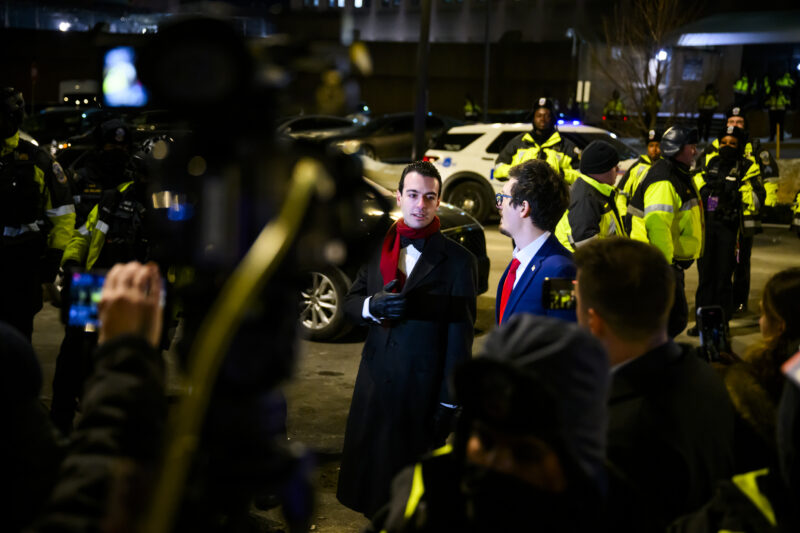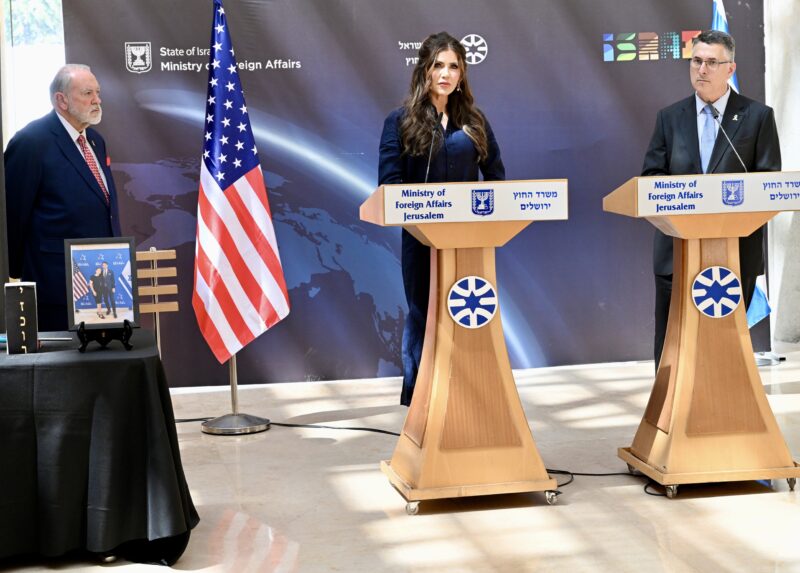Justin Overbaugh’s nomination to be deputy undersecretary of defense for intelligence and security will likely come before the full Senate soon

Win McNamee/Getty Images
Justin Overbaugh, nominee for the Deputy Under Secretary of Defense for Intelligence and Security, testifies before the Senate Armed Services Committee on Capitol Hill May 1, 2025 in Washington, DC.
Justin Overbaugh is set to be the latest affiliate of the Koch-backed Defense Priorities think tank placed in a top post at the Defense Department, approaching confirmation as the deputy under secretary of defense for intelligence and security.
Numerous others affiliates of the isolationist think tank have been picked for top roles in the Defense Department and the Trump administration, including Michael DiMino, the deputy assistant secretary of defense for the Middle East; William Ruger, the deputy director of national intelligence for mission integration; Dan Caldwell, a senior advisor at the Pentagon who has since been fired; and Daniel Davis, who was initially picked for the deputy director of national intelligence role but had his job offer rescinded amid public scrutiny.
A number of the Defense Priorities alumni throughout the administration have taken vocal positions opposing action against Iran and arguing the U.S. should pull back from the Middle East. Overbaugh, by contrast, lacks the extensive public record of those other officials — though he has also broadly called for a more restrained U.S. role in the world — and his nomination has attracted little public attention or controversy.
Overbaugh spent 25 years in the Army, retiring as a colonel, and focused on intelligence and global counterintelligence operations.
“I hope to lead the enterprise in strategic assessments that shape defense requirements, ensuring they are data-driven, actionable, and aligned with national security priorities,” Overbaugh said in written testimony to the Senate Armed Services Committee. “I believe that we do not have the resources to cover all threats simultaneously, therefore we must be deliberate and discerning about the capabilities we pursue to defend our Nation and deter, or if necessary, defeat, our adversaries.”
His confirmation hearing in early May passed without incident and he was reported favorably out of the committee weeks later. The nomination will likely be considered on the Senate floor soon.
He argued in a co-authored piece for the Journal of Strategic Security in 2023 that the U.S. needed to reformulate its global foreign policy approach.
“It is time for the United States to rethink the foundations of its foreign policy as its global hegemony declines. America’s existing grand strategic enterprise—one that aspired to build a rules-based international order through liberal markets, institutions, and norms since 1990—increasingly appears to be unsustainable,” the article reads. “As a result, the current generation of American leaders, advisors, and foreign policy practitioners need to consider whether the decline of the liberal hegemony signals a necessary decline in the fortunes of [the] United States on the world stage or, rather, provides an opportunity for a healthy reset of grand strategic thinking.”
It concludes, “Principled beliefs may have a place in American foreign policy but pursuing them demands a clear understanding of their impact to dispel the erroneous belief that there are no trade-offs involved.”







































